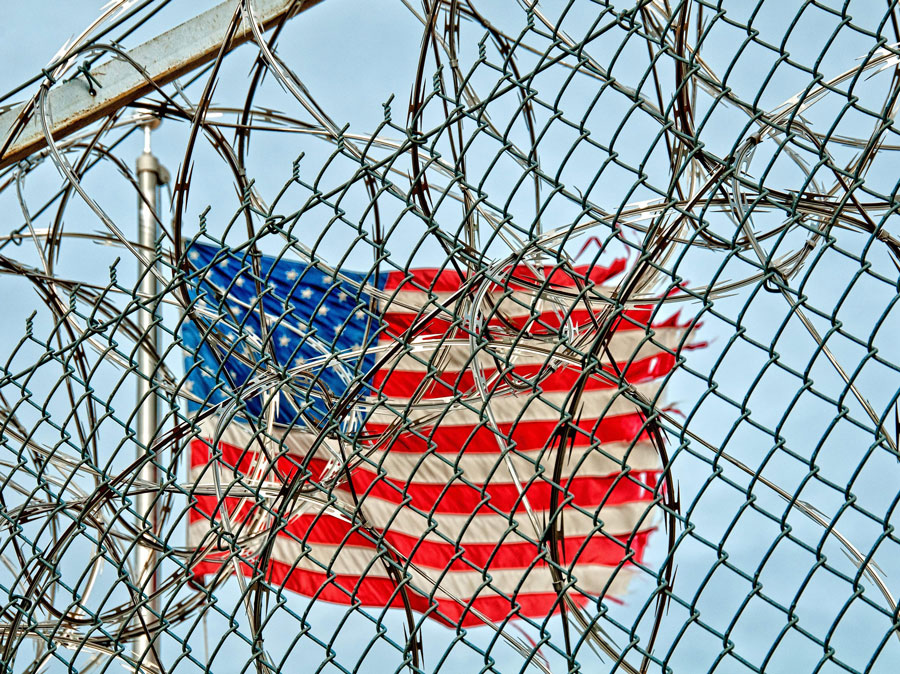The U.S. Constitution enshrines a range of rights designed to protect the liberties and dignities of its citizens. Despite their status, persons incarcerated following criminal convictions retain many of these rights. This essay will detail and discuss these constitutional rights, illuminating how they operate in the context of American prisons. The U.S. Constitution, through its original articles and subsequent amendments, provides the bedrock for American law, governing all aspects of legal life – including the conditions of incarceration. A selection of these articles and amendments is particularly significant to the rights of inmates.
First Amendment Rights: The First Amendment guarantees freedom of speech, religion, and assembly, and these rights extend, albeit with modifications, to incarcerated individuals. Prisoners have the right to correspond with the outside world and express their thoughts, albeit subject to restrictions necessary to maintain order, discipline, and security. Religious freedom is another critical First Amendment right for inmates. The Religious Land Use and Institutionalized Persons Act (RLUIPA) prohibits the government from imposing a substantial burden on prisoners’ religious exercise unless it is the least restrictive means of furthering a compelling governmental interest.
Fourth Amendment Rights: The Fourth Amendment protects citizens from unreasonable searches and seizures, although this protection is significantly limited in prison. Courts generally uphold routine searches of inmates and their cells without a warrant, justifying such actions as necessary for institutional security.
Eighth Amendment Rights: Arguably the most important for incarcerated individuals is the Eighth Amendment, prohibiting cruel and unusual punishment. This clause has been interpreted to encompass the right to adequate food, clothing, shelter, medical care, and safety.
Fourteenth Amendment Rights: The Equal Protection Clause of the Fourteenth Amendment prevents the state from denying any person within its jurisdiction the equal protection of the laws. Thus, it has been applied to prohibit racial segregation in prisons, except for valid security reasons. The Due Process Clause also provides prisoners with the right to procedural fairness in disciplinary hearings, though these rights are not as extensive as they would be in a criminal trial.
Several Supreme Court cases have shaped the constitutional rights of incarcerated persons. In Turner v. Safley (1987), the Court established that when a prison regulation infringes on inmates’ constitutional rights, the regulation is valid if it is reasonably related to legitimate penological interests. In Estelle v. Gamble (1976), the Court determined that deliberate indifference to the serious medical needs of prisoners constitutes the unnecessary and wanton infliction of pain, thus violating the Eighth Amendment. Another seminal case, Wolff v. McDonnell (1974), found that prisoners are entitled to certain due process rights in prison disciplinary hearings, such as advance written notice of the charges, the opportunity to call witnesses and present documentary evidence, and a written statement of the evidence relied on and the reasons for the disciplinary action.
Despite these constitutionally enshrined rights, the practical realities of prison life often infringe on inmates’ abilities to exercise them fully. Overcrowding, understaffing, and the overarching need for security and order often lead to rights being curtailed. Judicial deference to prison officials, as demonstrated in Turner v. Safley, often limits the enforcement of these rights.
While the Constitution outlines fundamental rights for incarcerated individuals, their practical application varies significantly. Balancing the necessary restrictions of imprisonment with the preservation of human dignity and liberty is a difficult task. As societal attitudes towards punishment and rehabilitation continue to evolve, so will the interpretation and enforcement of these constitutional rights.






